Deputy Prime Minister Le Minh Khai said the Government will actively make efforts to have capital to restart the Ben Luc - Long Thanh expressway project.
As the last member of the Government to answer questions before the National Assembly, Deputy Prime Minister Le Minh Khai had more than an hour on the morning of June 8 to answer questions from delegates.
After reporting on the socio-economic situation in May and issues of concern to delegates, Mr. Khai answered the first question from delegate Nguyen Thi Hong Hanh (Deputy Director of the Ho Chi Minh City Department of Justice) about the Ben Luc - Long Thanh expressway project which is currently suspended.
The Deputy Prime Minister said that the Ben Luc - Long Thanh expressway project uses ODA capital but the capital allocation mechanism is not favorable. The project has been suspended since 2019, mainly due to capital problems.
According to Mr. Khai, to implement this project, capital is needed, but the state budget is not allocated and other legal capital sources must be used, while ODA negotiations are facing difficulties. If toll revenue from the Vietnam Expressway Corporation (VEC) is used, a separate mechanism must be created to meet the debt repayment for the five projects that this unit has borrowed capital from.
"Recently, Deputy Prime Minister Tran Hong Ha and the Prime Minister have given very strong instructions. I think we need to carefully calculate the capital mechanism and renegotiate with investors to restart the project as soon as possible. Deputy Prime Minister Tran Hong Ha told me it could be in July, but I dare not promise. The Government will actively and make efforts to have capital to promote the project as soon as possible," said Mr. Khai.
Deputy Prime Minister Le Minh Khai talks about the Ben Luc - Long Thanh expressway project. Video: National Assembly Television
Earlier in the question-and-answer session with Minister Nguyen Van Thang, delegate Nguyen Thi Hong Hanh said the Ben Luc - Long Thanh expressway project was approved for investment in 2010 and is expected to be completed in 2022. She asked the Minister to provide information on the project's progress and commitment to completion time.
Minister Nguyen Van Thang said the delay in the project was due to difficulties in counterpart funding for the Vietnam Expressway Corporation (VEC). Meanwhile, funding from the Japan International Cooperation Agency (JICA) and the Asian Development Bank (ADB) could not be disbursed. This led to the agreement not being extended when it expired. To resolve the issue, the Ministry of Transport coordinated with the Capital Management Committee and VEC to submit to the Government and the National Assembly a proposal to resolve the financial issue.
The problems have now been resolved. JICA capital has been allocated by the National Assembly, counterpart capital has been provided by the Government, and contractors have resumed construction. The sections using ADB capital will be completed in the first and second quarters, while the two bridges along the entire route will be completed no later than the third quarter of 2025.
"The basic capital source has been cleared, the units are coordinating to prepare the procedural program and adjust the project to continue," he said.
Speaking further about this issue, National Assembly Chairman Vuong Dinh Hue said that the capital issue as Minister Thang mentioned "is only a part". Through inspection, Mr. Hue found that the key problem now is the complaints and lawsuits of foreign investors when construction has to stop or rest. They demand a lot of compensation. "If this issue is not resolved, the project's progress will continue to be slow", Mr. Hue worried and asked Deputy Prime Minister Le Van Khai to answer more about how to solve the project.
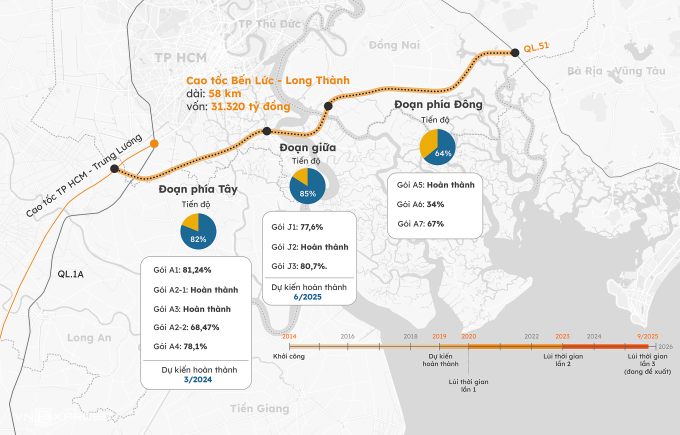
Progress of Ben Luc - Long Thanh Expressway. Graphics: Hoang Khanh
The Ben Luc - Long Thanh Expressway is nearly 58 km long, passing through Long An, Ho Chi Minh City and Dong Nai, and started construction in 2014. In the first phase, the route is designed with 4 lanes, 2 emergency lanes, and a speed of 120 km/h. This is a national key project, helping to connect the two regions of the East and the Southwest, creating momentum for the development of the key economic region in the South.
The project has a total investment of VND31,320 billion, including three capital sources from the Asian Development Bank (ADB), the Japan International Cooperation Agency and domestic counterpart funds. The route is divided into three sections, including 11 main construction packages. Of which, 5 packages in the western section (A1, A2-1, A2-2, A3, A4) use ADB capital. Three packages in the middle section (J1, J2, J3) use JICA capital. The remaining three packages in the east (A5, A6, A7) use capital from the second ADB loan agreement.
In 2019, the project reached 80% of its volume but was stuck in procedures and was not allocated capital, leading to many contractors stopping construction. To resolve the problem and restart the entire project, the Ministry of Transport submitted to the Government for approval an adjustment to the investment policy, including postponing the completion date to September 2025 and adjusting the financial mechanism for each capital source in the project. In particular, VEC is allowed to use accumulated capital and legal sources of the unit to complete the project.
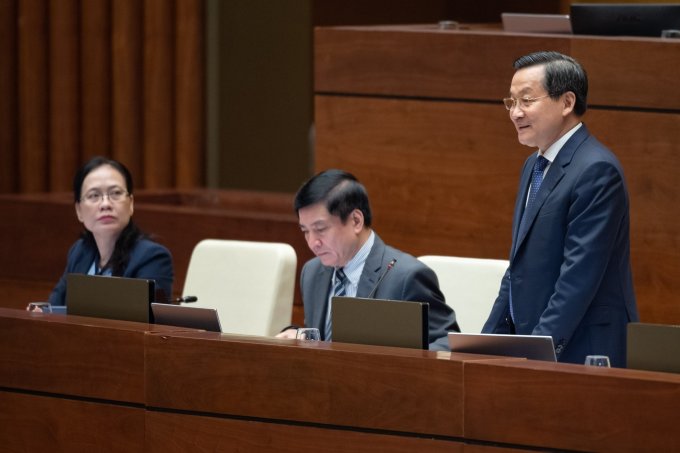
Deputy Prime Minister Le Minh Khai answers questions before the National Assembly on the morning of June 8. Photo: National Assembly Media
Proposal to build overpass in Mekong Delta
Regarding transport infrastructure, participating in the debate with Deputy Prime Minister Le Minh Khai, delegate Pham Van Hoa (Vice President of the Dong Thap Province Lawyers Association) refuted the view that "building overpasses is expensive". He analyzed that building overpasses in the Mekong Delta would have many benefits because this area has many low-lying and flooded fields. Building overpasses requires little land acquisition, does not hinder agricultural production, and does not affect the environment. He suggested that relevant sectors study the construction of overpasses in this area.
"If it's difficult, let's do a pilot and learn from the experience. If we're afraid of high costs and other problems before construction, it's not convincing," he said.
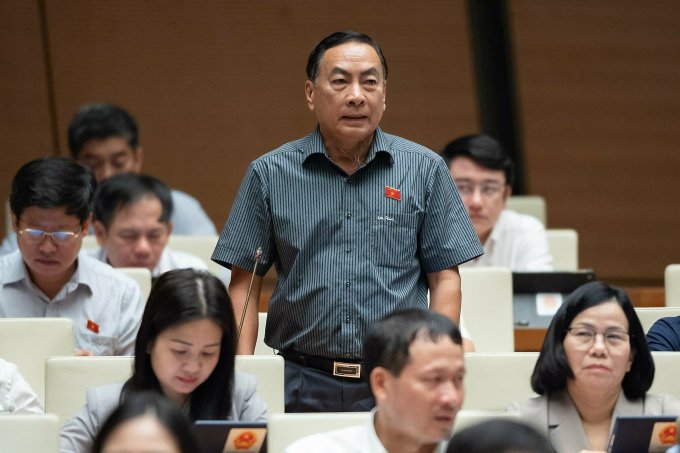
Delegate Pham Van Hoa. Photo: National Assembly Media
The Deputy Prime Minister said that the Mekong Delta lacks sand, stone, and materials for construction of traffic and civil works, so it is necessary to calculate effective and practical solutions. During the question and answer session, Minister of Transport Nguyen Van Thang considered testing using sea sand, while delegate Hoa said that building an overpass is more feasible.
"However, there needs to be a full assessment and calculation between the option of building an overpass and a normal highway, in terms of land exploitation, construction materials, exploitation value, and environmental impact," he analyzed, suggesting that the Ministry of Transport make a careful assessment to propose to the Government.
Responding to the policy of using sea sand as construction material, the Deputy Prime Minister said that because of the construction of many highways, the demand for materials is high, and a special mechanism is needed for sand exploitation. The Government has conducted research on these projects within its authority, and the Standing Committee has also issued a mechanism to allow national key projects for investors to directly exploit them.
Mr. Khai expressed his opinion that it must be done quickly but must protect the environment, ensure safety in mining, and be fair and transparent for the common good, not to buy and sell sand mines, and to fight against group interests in implementing these special mechanisms.
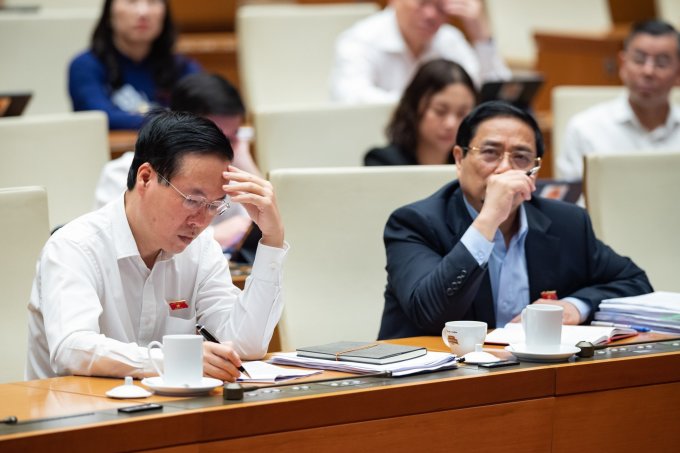
President Vo Van Thuong (left cover) and Prime Minister Pham Minh Chinh attend the question-and-answer session on the morning of June 8. Photo: National Assembly Media
Strengthen inspection to "hit the mouse without breaking the vase"
Questioning on June 8 about the transport sector, delegate Tran Thi Kim Nhung (Standing member of the Law Committee) raised the shortage of inspection staff. According to her, the work of preventing and combating corruption and negativity must be done in a clever way to "hit the mouse without breaking the vase", that is, to maintain stability in the implementation of public duties to ensure service to the people and businesses, and maintain normal operations.
She asked Deputy Prime Minister Le Minh Khai to tell her what lessons have been learned from this vehicle inspection incident in the work of preventing and combating corruption and negativity?
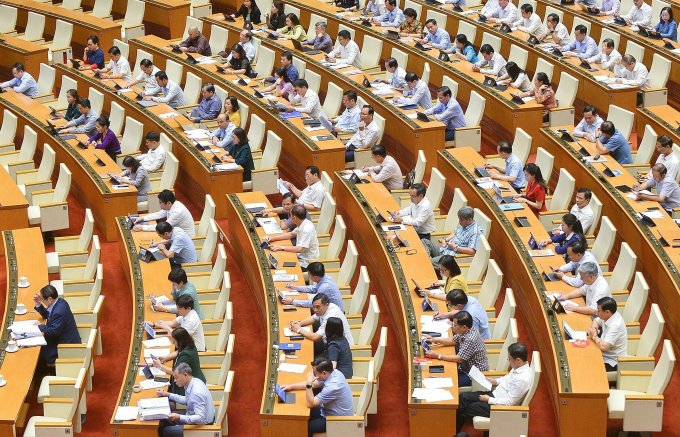
Questioning session with Deputy Prime Minister Le Minh Khai on the morning of June 8. Photo: National Assembly Media
Deputy Prime Minister Le Minh Khai said that after summarizing 10 years of fighting corruption and negativity, 8 lessons have been drawn. The recent incident at the vehicle inspection centers is also part of that lesson. The violations may have occurred long ago, on a large scale, with many criminals. To date, there have been a total of over 60 cases, with about 639 related subjects in 39 provinces and cities.
Mr. Khai said that the lesson learned is to improve the quality, review and perfect the mechanism, functions and tasks of the inspection center model, in which it is necessary to separate the State management function and inspection services, ensuring transparency.
"There should be many solutions to prevent corruption such as changing job positions, using information technology in operations, and strengthening inspections to promptly detect and handle early to meet the requirement of "hitting the mouse without breaking the vase", said the Deputy Prime Minister.
Sharing the same concern about this issue, delegate Nguyen Thi Thu Ha (Deputy Head of Quang Ninh Delegation) said that to fight corruption, power must be controlled. "So what is the core solution to control power?", the female delegate asked.
The Deputy Prime Minister said that through summarizing the work of preventing and combating corruption, one of the major lessons is to control power, because power tends to be corrupted if not controlled, and negative corruption is an inborn defect of power. "Controlling power is a fundamental solution in preventing and combating corruption, helping to promptly eliminate, detect, prevent and handle violations," said the Deputy Prime Minister.
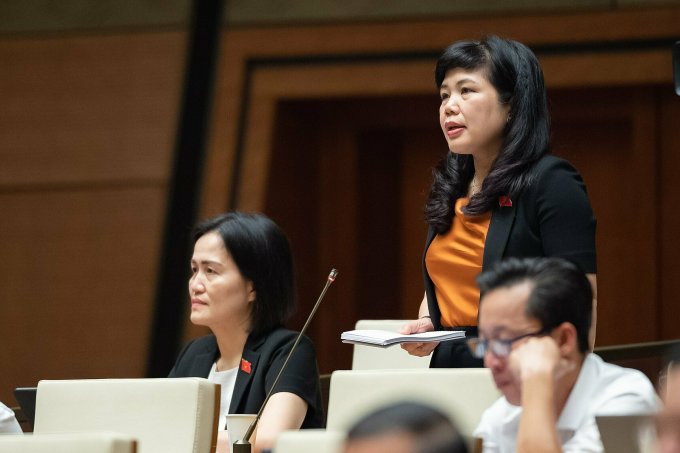
Delegate Nguyen Thi Thu Ha. Photo: National Assembly Media
In recent years, one of the important tasks in the fight against corruption has been to control the power of the agencies that exercise State power. General Secretary Nguyen Phu Trong has repeatedly requested the establishment of a "power control mechanism, locking power in a cage of mechanisms".
Regarding solutions, Mr. Khai said that it is necessary to perfect the mechanism for implementing state power, defining the functions and powers of each agency in the executive, judicial and legislative branches; innovate and improve the capacity of inspection, investigation, prosecution and trial agencies; strengthen supervision and control of the implementation of responsibilities of people with positions and powers; ensure democracy, publicity and transparency.
"Those with positions and powers must self-correct and closely combine the control mechanisms of the Party, State, people, mass organizations and the press," said the Deputy Prime Minister.
Solving difficulties in real estate market and corporate bonds
Delegate Sung A Lenh (Deputy Head of Lao Cai Delegation) pointed out the current situation of the frozen real estate market, real estate enterprises having difficulty accessing capital, and the corporate bond market in crisis. Many real estate enterprises are slow in paying principal and interest on bonds, especially when the pressure to mature and pay interest on corporate bonds in 2023 is very large. The volume of corporate bonds in 2023 is nearly 290,000 billion VND, of which the third quarter is the largest with 103,000 billion VND.
According to the delegate, this has caused frustration for many people, reduced market and investor confidence, so capital mobilization from bond issuance is low, potentially posing a risk of social instability. "I request the Deputy Prime Minister to clarify the responsibilities of state management agencies on this issue? What are the guiding viewpoints and fundamental solutions to promote the safe and healthy development of the real estate market and corporate bonds?", he questioned.
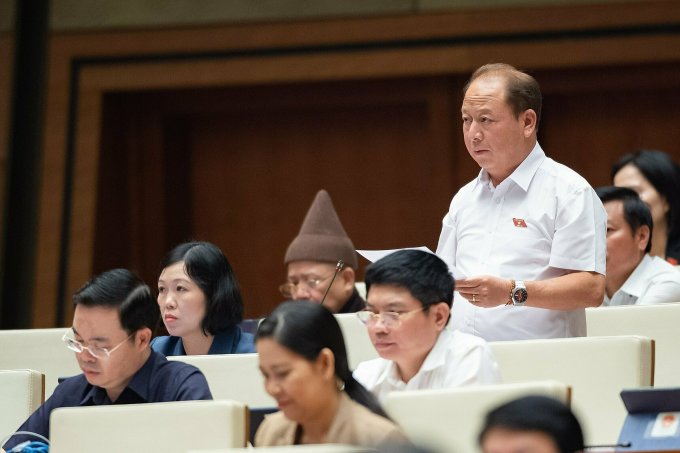
Delegate Sung A Lenh. Photo: National Assembly Media
Deputy Prime Minister Le Minh Khai said the real estate and corporate bond markets are facing many difficulties, affecting macroeconomic management and business operations. The first reason why businesses are stuck in bond handling is unreasonable management of circulation and use of cash flow in financial leverage. In some cases of violations, the police have investigated and prosecuted. The bond market is also not yet sustainable in structure, leaning towards risky markets such as real estate. The production and business situation of businesses after the Covid-19 pandemic is financially difficult, so the liquidity of individual corporate bonds is also very difficult.
According to the report of the Ministry of Finance, the bonds due for payment as of December 31, 2022 are 1.2 million billion VND, of which the maturity in 2023 is 290,000 billion VND, which enterprises are obliged to pay. Real estate also faces many difficulties due to legal issues, product structure such as low-priced products, high-priced products; and investor capacity.
Recently, the Prime Minister established a working group headed by two Deputy Prime Ministers to study and evaluate the existing problems, limitations, causes, and propose solutions. When these two working groups have reports, the Government will direct to remove difficulties for the real estate and corporate bond markets, and agencies will strengthen inspection and supervision to ensure transparency of these activities.
According to Mr. Khai, in the first quarter, enterprises and state management agencies have stabilized the situation, continued to remove difficulties in the spirit of enterprises having responsibilities according to civil contracts, the state participating in inspection and control to promote the implementation of commitments according to obligations, if there are violations, they will be strictly handled, protecting the rights of people and investors.
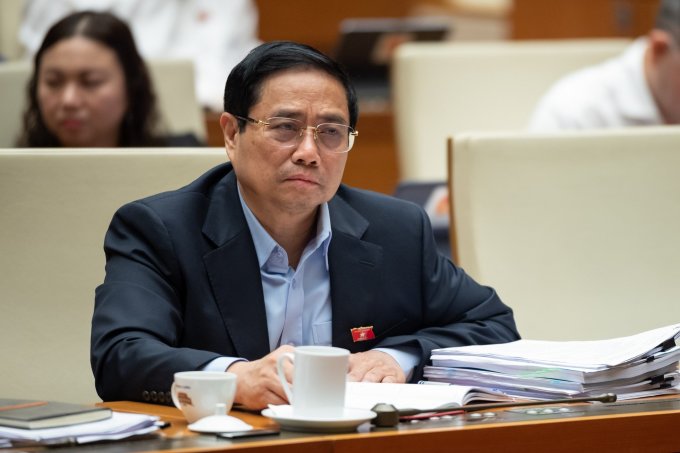
Prime Minister Pham Minh Chinh attends the question-and-answer session on the morning of June 8. Photo: National Assembly Media
Attracting FDI faces difficulties as global minimum tax takes effect
Delegate Nguyen Danh Tu said that the global minimum tax poses many challenges when attracting foreign investment, requiring effective response to negative impacts, ensuring competitiveness and attractiveness of the investment environment. The delegate asked the Deputy Prime Minister to provide direction for action and solutions to this issue.
Deputy Prime Minister Le Minh Khai said that in June 2021, the G7 group reached an agreement on a global minimum tax, setting a corporate income tax rate of about 15% to be paid in the host country. For foreign-invested enterprises, the difference must be settled at a level of 15%. In July 2021, the G20 also agreed on a global minimum tax and 138 countries in the OECD bloc reached a framework agreement related to this content. According to the Deputy Prime Minister, Vietnam participates in international cooperation agreements, ensuring integration but not mandatory.
The Government, the National Assembly and the National Assembly Chairman himself are also very interested, have organized many forums, have closely directed this issue; established a working group to study and assess the impact. The Government Standing Committee has met, proposed to the Prime Minister, and submitted to the National Assembly the earliest solution on deeply integrated tax policies. In particular, tax collection must ensure the legitimate rights and obligations of investors and harmonize national interests.
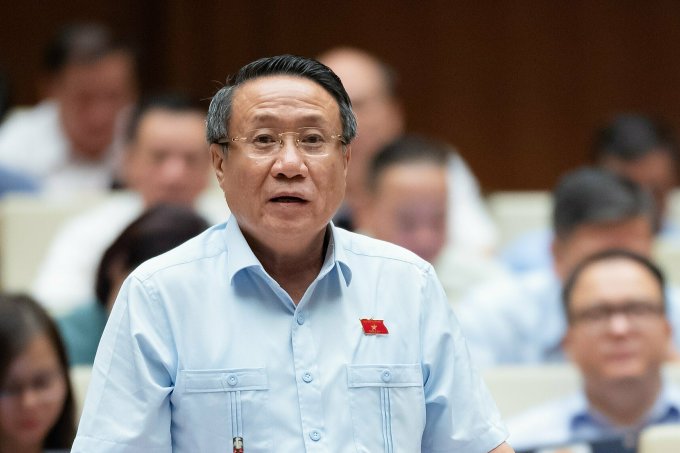
Delegate Ha Sy Dong. Photo: National Assembly Media
Delegate Ha Sy Dong (Permanent Vice Chairman of the Quang Tri Provincial People's Committee) raised the issue that the prospect of FDI into Vietnam is not optimistic when the global minimum tax law takes effect from the beginning of 2024. There is an unofficial policy forming in reality that international investors discriminate and treat countries, causing a series of preferential policies to attract FDI in Vietnam to be less effective. He asked the Deputy Prime Minister to elaborate on this issue.
Deputy Prime Minister Le Minh Khai acknowledged that this is a topical issue that needs to be assessed scientifically, seriously, and practically. Because implementing a global minimum tax will impact investment attraction commitments, especially regarding taxes. Therefore, it is necessary to handle it carefully and thoroughly, ensuring all influencing factors. "Attracting FDI is facing difficulties due to the general context. In the coming time, the Government will have appropriate solutions to attract FDI with the highest efficiency," said Mr. Khai.
The question-and-answer session of Deputy Prime Minister Le Minh Khai ended at 11:30 a.m., after answering questions and debating with 14 delegates; 48 delegates registered but ran out of time, so they will send a written request to respond.
National Assembly Chairman Vuong Dinh Hue assessed that after 2.5 working days, the National Assembly completed the question and answer session, promoting a democratic, frank and enthusiastic spirit.
At the session, 454 National Assembly deputies registered to question, 112 exercised their right to question, and 49 deputies debated to clarify issues of concern. "This session, we will make the most of every minute, not wasting the time the National Assembly spends on the question session," said Mr. Hue.
The National Assembly Chairman also assessed that the ministers demonstrated their mettle, grasped the current situation of the industry and field, were straightforward, did not beat around the bush, and did not avoid difficult and complicated issues.
See main eventsSource link


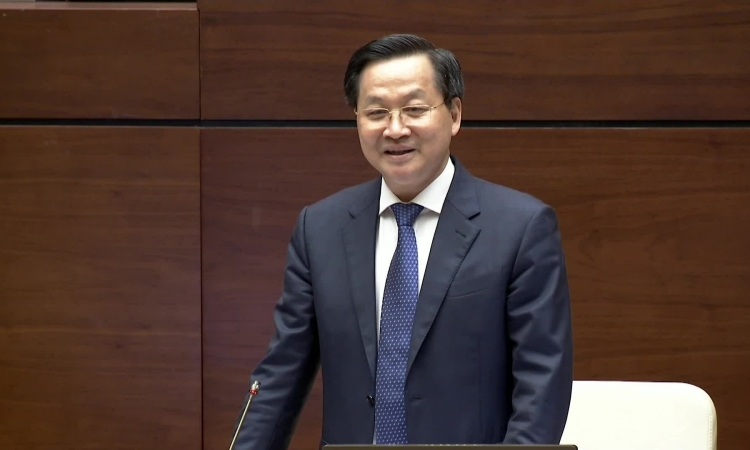




























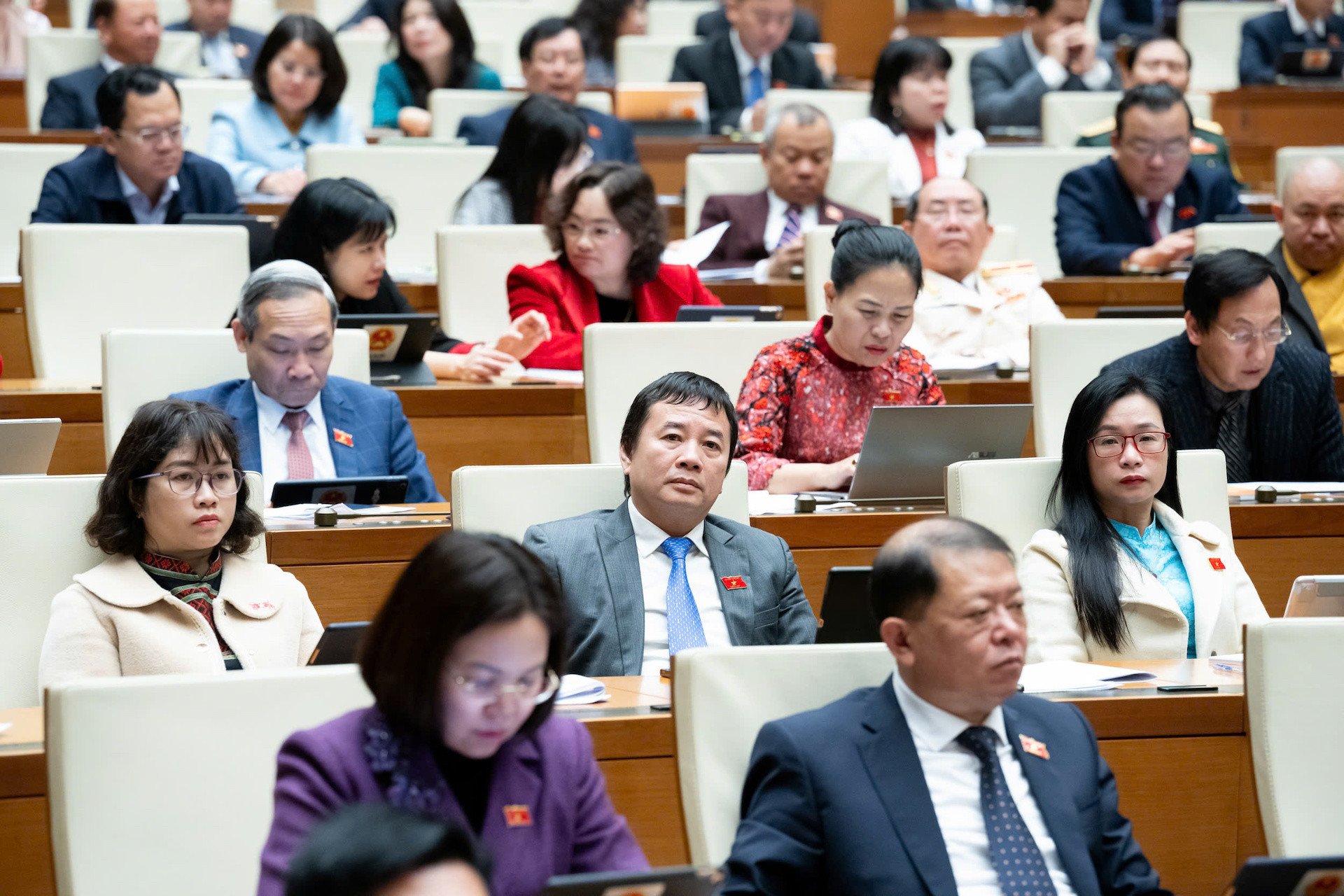

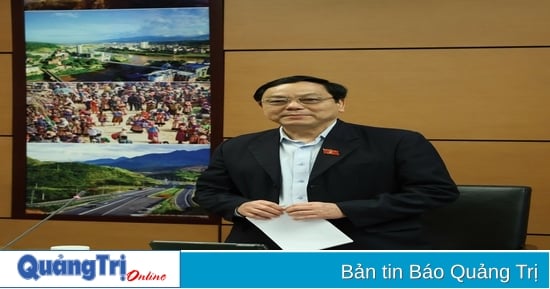
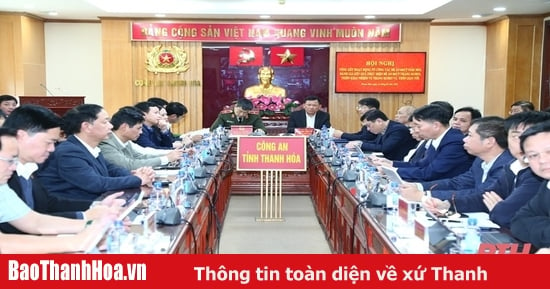
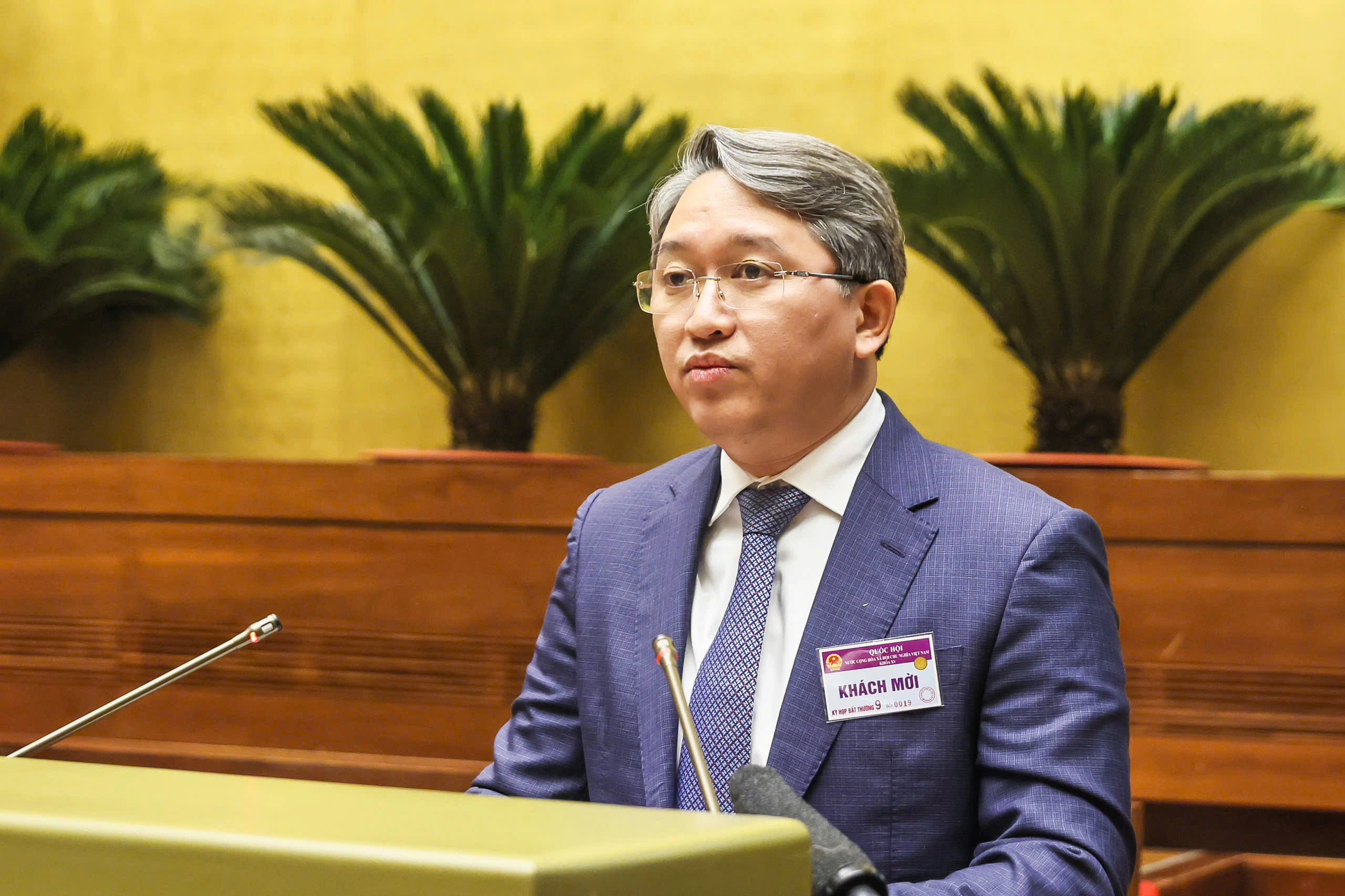



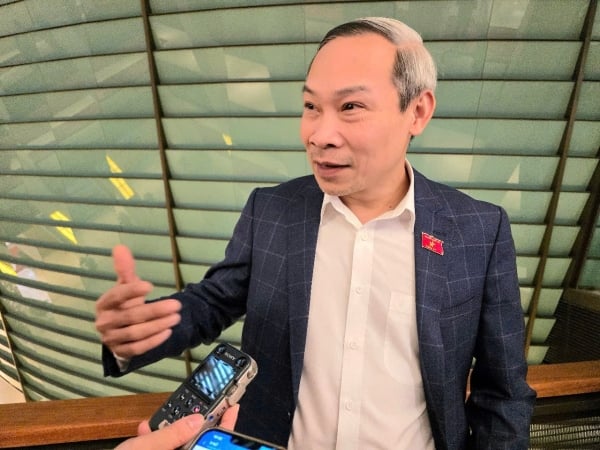

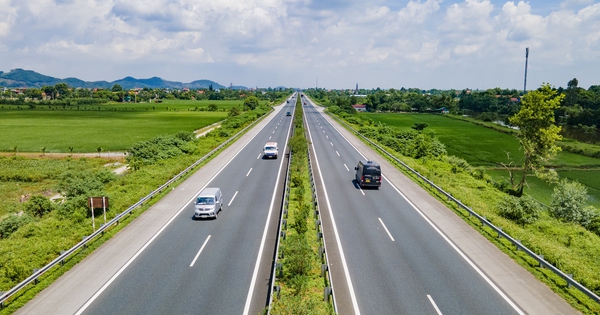

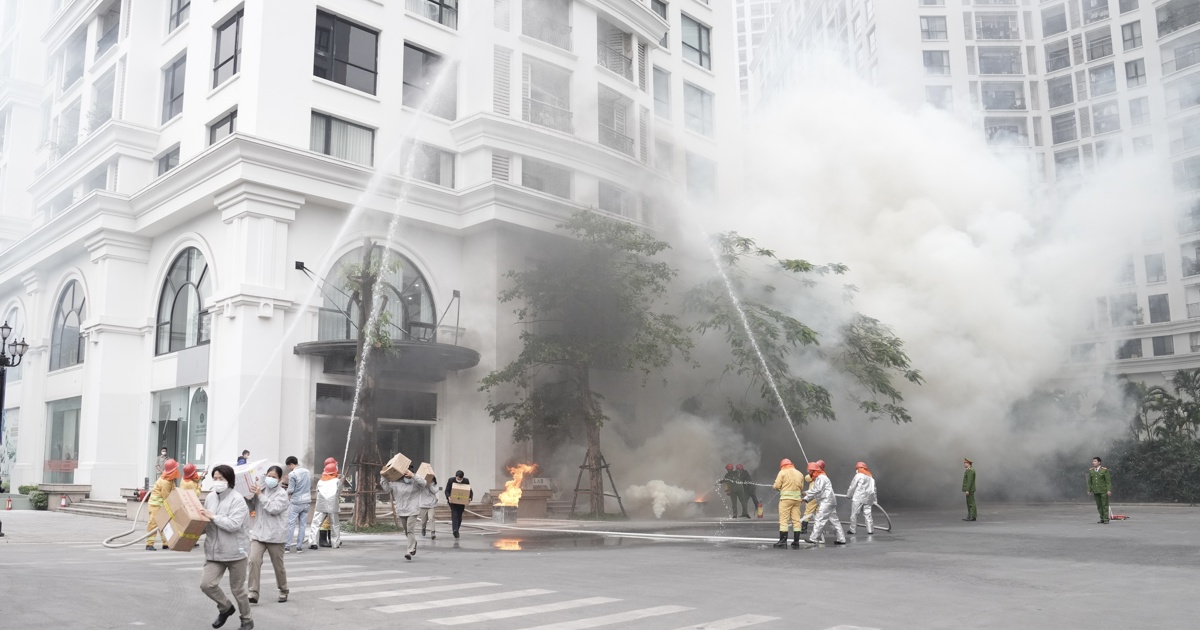

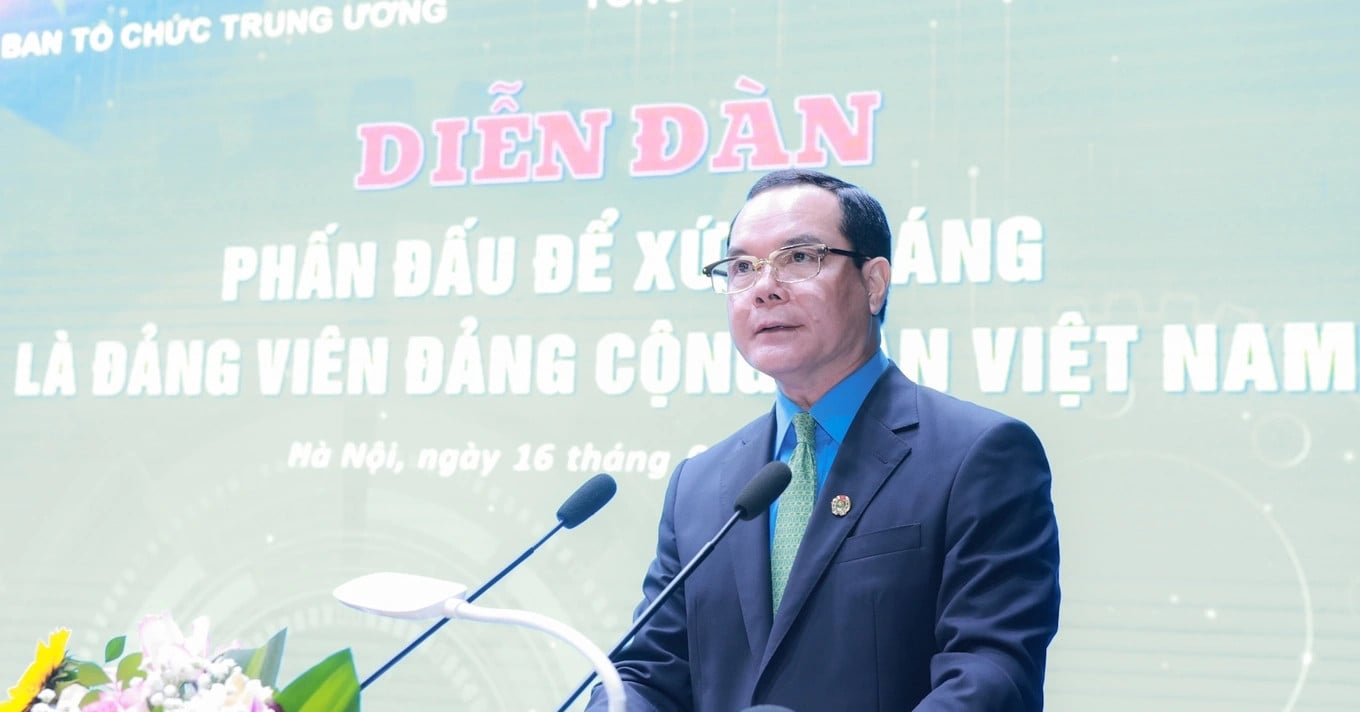
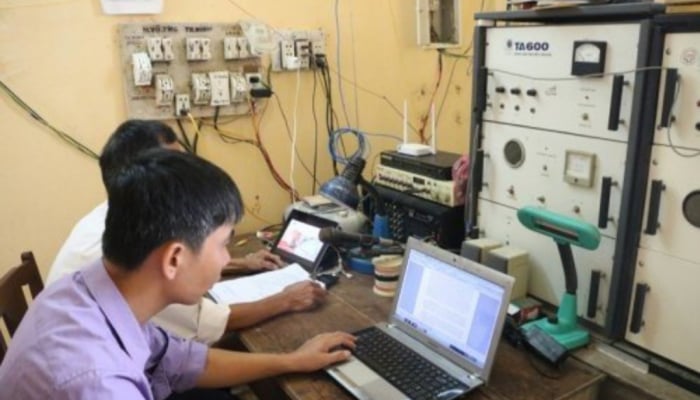
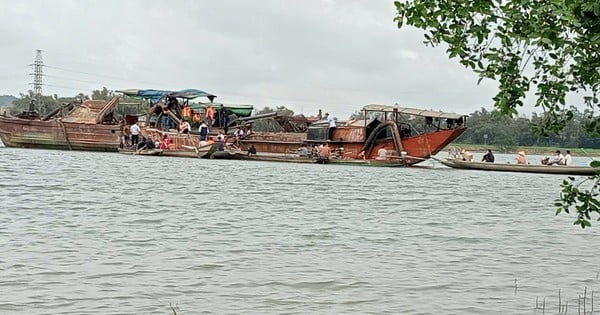

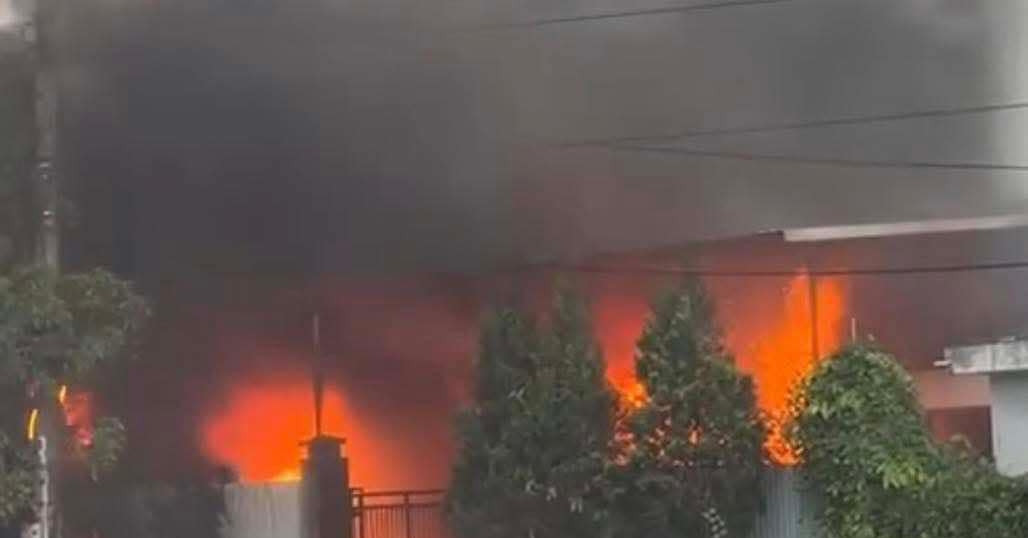



















Comment (0)